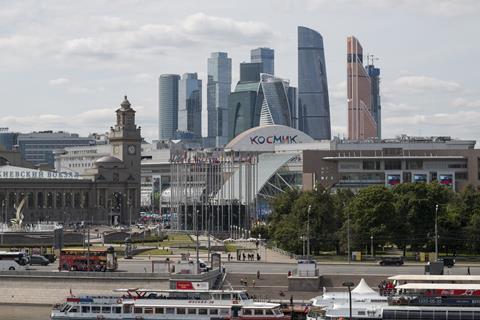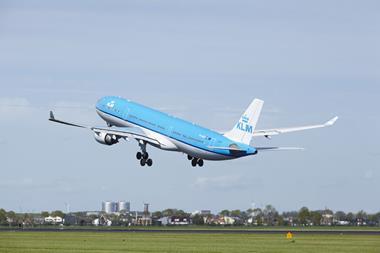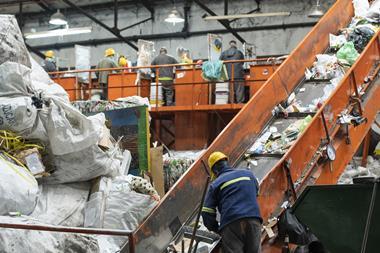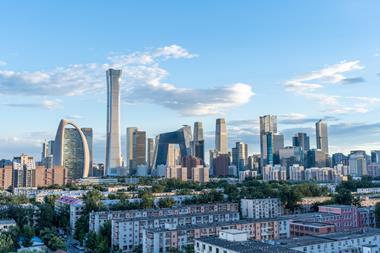Most Dutch pension funds have completely written off the value of their remaining Russian investments now that they have been unable to sell them for two years. But PFZW is taking a different approach.

It has been almost two years since Russian president Vladimir Putin launched his ’special military operation’ and invaded Ukraine.
On 24 February 2022, the day of the invasion, the Moscow Stock Exchange also closed. A month later, it opened its doors again but only for Russian investors. Foreign investors have not been allowed to sell their Russian stock holdings ever since.
Most pension funds in Europe announced in the aftermath of the invasion that they would sell all their investments in Russia. However, they are still stuck with the Russian shares they had at the beginning of the war.
Most pension funds routinely invested in Russian stocks before the invasion because they were part of emerging market stock indices at the time. Index builders such as MSCI removed Russia from their emerging market indices in 2022.
PFZW
Pension funds invested only a small portion of their equity portfolios in Russia, but for large funds the amounts involved were still significant. In December 2021, the Dutch healthcare sector scheme PFZW had over €100m invested in Russian stocks, for example.
The fund has since significantly cut the valuation of its investments in these stocks. For instance, the value of the position in oil company Lukoil has been reduced from €32m at the end of 2021 to €3m at the end of July 2023.
“The valuation of these positions is based on the Russian market with a significant discount for illiquidity,” a PFZW spokesperson told IPE.
Unsellable
By not fully writing off its Russian equity investments, PFZW is taking a different approach than most other pension funds.
Bpf Bouw, ABP, PME and PMT, which together with PFZW account for the majority of Dutch pension assets, have labelled their remaining investments in Russian equities as “unsellable”. Consequently, they have set the current value of these investments at zero.
“Russian stocks are not sellable or removable from the portfolio as a result of the current sanctions. In fact, they cannot be disposed of either,” according to a spokesperson for metals industry scheme PMT.
Despite the fact that the pension funds are still the legal owners of these shares, they choose not to include them in the investment statements on their websites.
Smaller pension schemes such as transport sector scheme Vervoer, retail industry scheme Detailhandel and GP fund Huisartsen have also removed their investments in Russia from their investment statements.
Whereas these funds have arguably given up hope of ever recovering any of their remaining Russian investments, this does not hold for €216bn PFZW.
The fund seems to remain hopeful of a thaw in relations between the West and Russia. “PFZW is monitoring opportunities to sell our Russian holdings as soon as it can again,” the spokesperson told IPE.
A pension fund not fully writing off its unsellable Russian investments is unusual, according to Steven Spiessens, partner at EY and responsible for auditing the financial statements of several pension funds.
“Because Russian investments are not liquid at the moment, you would expect at least a substantial write-down. But since it is currently not possible to determine the value of these Russian investments, most investors have set their value at zero”
Steven Spiessens, partner at EY
“The pension funds I work with all have fully written off their remaining Russian investments,” said Spiessens.
“The reporting rules say that you have to value investments at market value. Because Russian investments are not liquid at the moment, you would expect at least a substantial write-down. But since it is currently not possible to determine the value of these Russian investments, most investors have set their value at zero,” he explained.
Government bonds
While trading in Russian stocks has been frozen for almost two years now, Russian bonds can be traded as usual. Most pension funds owned little or no Russian corporate and government bonds before the start of the war in Ukraine, with a few exceptions.
For example, Vervoer, Detailhandel and PFZW did invest in Russian government bonds, in some cases for significant amounts. At the end of 2021, for example, PFZW was holding nearly €800m worth of Russian government bonds.
In 2022, according to a spokesman, the healthcare fund managed to sell its Russian government bonds, as well as most of the corporate bonds (of Lukoil and Gazprom, among others) it held. The same is true for Vervoer, said director Willem Brugman.
“Our Russian government bonds were all sold in 2022. This took place through trading platform Euroclear,” Brugman told IPE.
Pensioenfonds Detailhandel, which held more than €200m in Russian government bonds before the war, did not respond to a question from IPE about what happened to those investments.
Trading in Russian bonds was also halted for some time after the start of the war, but it resumed again after a few weeks.
PFZW and Vervoer most likely had to swallow a substantial loss on their Russian bond investments when they sold them. Prices of Russian bonds in the months after the invasion were trading at as low as 80% below their nominal value.
Later in the year, according to data from Refinitiv, prices rebounded somewhat, to just above 50 cents to the dollar.
International sanctions prohibit European and American investors from buying Russian bonds or receiving payments from Russia. But selling securities to investors from countries where sanctions against Russia do not apply is allowed.
Consequently, hedge funds based in low-tax jurisdictions such as the Cayman Islands bought up many of these bonds at rock-bottom prices in 2022, according to media reports. Oligarchs with connections to the Kremlin were also believed to have been frequent buyers.
In most cases, however, selling investors do not know who the buyers of their bonds are because there is usually an intermediary, such as Euroclear, operating between the seller and they buyer.
Sanctions miss their mark
Meanwhile, many Russian corporate bonds have recovered considerably, and are now trading at 55% to 75% of their nominal value, according to a head of emerging market debt of a well-known asset manager who requested anonymity.
“So in hindsight it may have been better to keep these bonds for a while longer, although I do understand that pension funds were under great pressure to sell them as quickly as they possibly could.”
But it was the buyers of these bonds who took advantage. “I have heard that there have been Russian companies that bought back their own debt securities cheaply in this way,” said the anonymous investor. “This way you actually achieve the opposite of the purpose of the sanctions, which is to weaken the Russian economy.”
This article was first published on Pensioen Pro, IPE’s Dutch sister publication.























